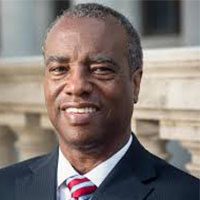Preston White Collar Crime Lawyer, Mississippi
Sponsored Law Firm
-
 x
x

Click For More Info:
-
The Law Offices of Richard L. Cooper, P.A.
848 Brickell Avenue Suite 800 Miami, FL 33131» view mapDWI/DUI, Drug Trafficking, Felony Nationally Ranked Top 40 Under 40
With Richard L. Cooper you can expect a trusted confidant who will work diligently to fully understand your case and determine a road map to help you regain control of your life.
800-756-2781
Not enough matches for Preston White Collar Crime lawyer.
Below are all Preston Criminal lawyers.
James H. Murphy
✓ VERIFIEDOffering several years of legal experience to our clients at Murphy Law Firm, PLLC, founding attorney James H. Murphy devotes his practice exclusively... (more)
Ottowa E. Carter
✓ VERIFIEDAttorney Ottowa E. Carter, Jr. is a native of Sardis, Mississippi. He graduated magna cum laude with a degree in mathematics from Jackson State Univer... (more)

 Richard L. Cooper Miami, FL
Richard L. Cooper Miami, FL AboutMiami Attorney at Law
AboutMiami Attorney at Law ServicesCriminal Defense
ServicesCriminal Defense


